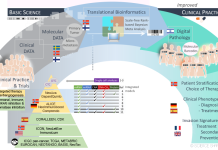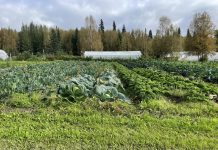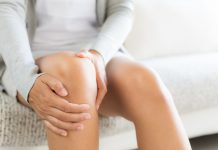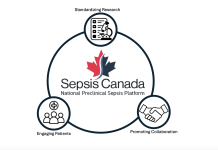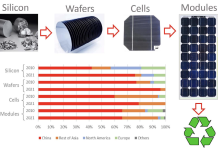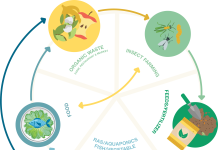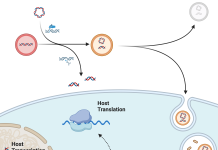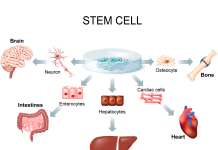Open Access Government produces compelling and informative news, publications, eBooks, and academic research articles for the public and private sector looking at health, diseases & conditions, workplace, research & innovation, digital transformation, government policy, environment, agriculture, energy, transport and more.
Home 2024
Archives
Modelling biodiversity is an essential part of its protection
Professor Guillaume Blanchet from Université de Sherbrooke considers why modelling biodiversity is an essential part of protection and how we can model biodiversity better.
Stem cell therapy for osteoarthritis: Functional cartilage regeneration using 3d bioprinting technology
Osteoarthritis presents a significant societal and economic burden. Stina Simonsson from the University of Gothenburg explains how EU-funded projects are using 3D bioprinting to create functional cartilage for OA treatment.
Breast cancer prevention: Precision medicine and health
Biobank Norway Project experts chart the journey from precision medicine to precision health when it comes to breast cancer prevention.
First insights into global permafrost-agroecosystems and recommendations for policymakers
Melissa Ward Jones discusses a recent paper published in Arctic, Antarctic, and Alpine Research of the first global study on permafrost-agroecosystems, published by members of the International Permafrost Association Permafrost-agroecosystem Action Group.
Sustainability transformations in marine governance in Sweden via social learning
Dr. Angelo Jonas Imperiale and Dr. Uta Wehn describe the MISTRA C2B2 programme’s unique approach to promoting sustainability transformations in Sweden’s marine governance through social learning in Living Labs.
Electric-field nanobubbles: A step change in nanobubble engineering, and its “coming of age”
Niall J. English, from Chemical Engineering at University College Dublin, discusses how electric-field nanobubbles have displaced their mechanically-generated counterparts in performance and sustainability.
Mobilizing pain care knowledge in Canada
Norm Buckley and Jason Busse from the Michael G. DeGroote Institute for Pain Research & Care discuss the mobilization of knowledge about the pain environment in Canada, focusing on the role of an ad hoc community-based organization.
Protecting cancer survivors across Europe from financial discrimination: The right to be forgotten
Mark Lawler and Françoise Meunier highlight the financial discrimination that many cancer survivors face despite being cured of their disease and propose a data-informed legal solution so that cancer patients are not punished for a previous cancer diagnosis.
Advancing knowledge about criminal justice and mental health
Researchers with expertise in criminal law, philosophy, psychiatry and psychology are combining their knowledge to explore how mental disorders are approached within criminal law and contribute to better legal and forensic practices.
Why and how systemic change overcomes ineffectiveness
Michael Beer, from Harvard Business School, provides insight into why and how systemic change overcomes ineffectiveness in organizations.
Making preclinical sepsis research stronger, faster, and more responsive to patients
Sepsis represents a significant global burden. The National Preclinical Sepsis Platform (NPSP) is leading vital sepsis research, informing policy, driving innovation, and ultimately saving lives.
Can Europe recover its photovoltaic manufacturing capacity?
Antonio Urbina, from the Department of Sciences and Institute for Advanced Materials and Mathematics (INAMAT2), Universidad Pública de Navarra (UPNA), based at Pamplona in...
“It’s not your fault!”: Aging and the dilemmas of literacy in a digital world
As the world becomes increasingly digitally focused, Kim Sawchuk, Director of engAGE: Centre for Research on Aging, Concordia University, examines what this shift means for older adults trying to navigate media literacy.
Seasonality and climate change: Challenges for physical activity in older adults
Research indicates seasonal variations in physical activity levels among adults in different climates due to temperature and humidity. Climate change’s increasing extreme weather may significantly affect physical activity in older adults already struggling to meet activity guidelines. Isabelle J. Dionne from the Université de Sherbrooke explains.
Bible reading and human flourishing among U.S. military families
Sung Joon Jang and Byron R. Johnson, inspire us with their research on Bible reading and human flourishing among U.S. military families.
Hormonal contraceptives and women’s mental health – A long-term perspective
Belinda Pletzer of the University of Salzburg discusses the importance of researching the mental health effects of hormonal contraceptives and the need to identify women at risk for adverse mood reactions before they start hormonal contraception.
Incitis-food: Food security and environmental justice in African city regions
Dr Buchenrieder, Dr Benjamin from the University of the Bundeswehr Munich, and Dr Radišić and MS.c. Trivunić, from Foodscale Hub, introduce the INCiTiS-FOOD project for improved food and nutrition security in African urban and peri-urban areas.
Engineering interkingdom communication for next-generation therapeutic approaches
Brian Snyder and Christopher H. Contag, from Michigan State University, discuss engineering interkingdom communication, which is not for palace intrigue, but for next-generation therapeutic approaches they argue.
Adipose tissue: A treasure trove of stem cells for regenerative medicine
Adipose tissue, commonly known as fat, has long been considered a mere energy reservoir. However, recent discoveries have revolutionized our understanding of this tissue, placing it at the heart of advances in stem cells and regenerative medicine.
Women entrepreneurs in violent conflict zones
Read here for insights from a Libya-based study conducted by researchers at the University of Alberta about women entrepreneurs in violent conflict zones.



